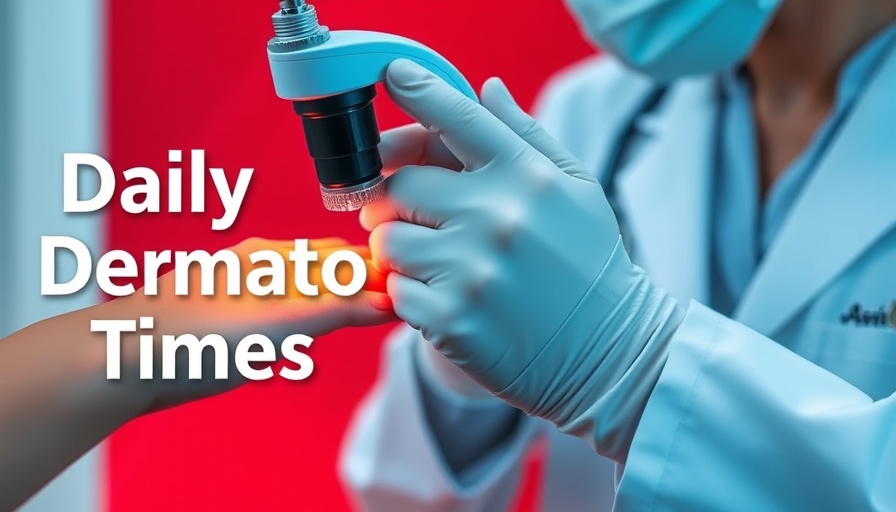
JAK Inhibitors: A Game-Changer for Alopecia Areata
Recent advancements in dermatological treatments have illuminated the potential of Janus kinase (JAK) inhibitors in managing alopecia areata, especially among underserved Black patients. These findings not only highlight the efficacy of JAK therapy but also emphasize the pressing need for more comprehensive clinical studies that encompass diverse populations. Research demonstrates that 63% of Black patients experienced notable hair regrowth after consistent use of JAK inhibitors, marking a significant step towards equity in dermatological care. By tailoring treatment to the needs of underrepresented groups, we can bridge the gaps in healthcare access and outcomes.
Transformative Gene Therapy for Recessive Dystrophic Epidermolysis Bullosa
The FDA's recent approval of pz-cel represents a watershed moment in the treatment of recessive dystrophic epidermolysis bullosa, a painful and debilitating condition characterized by fragile skin and blister formation. This innovative gene therapy not only improves patient quality of life but also opens doors to future genetic treatments that could fundamentally change the landscape of dermatological care. Patients who undergo this therapy can expect to regain mobility and enhance their overall well-being, marking an extraordinary leap forward in managing genetic skin disorders.
Evaluating Psychological Impact with the Hair & Scalp CARE Questionnaire
Addressing the psychological aspects of dermatological conditions, the newly developed Hair & Scalp CARE questionnaire is a critical tool designed to assess the impacts of hair loss and scalp diseases on quality of life. This 21-item tool empowers healthcare providers to understand the emotional toll that such conditions take on patients, fostering not only better treatment outcomes but also deeper conversations around self-esteem and personal health. The emphasis on mental health in dermatology underscores the multidisciplinary approach needed for comprehensive patient care.
Understanding Sun Exposure Risks in Psoriasis Patients
While sunlight can offer therapeutic benefits for psoriasis, irresponsible sun exposure habits, particularly among younger patients, have raised alarm bells among dermatologists. The dual risk of tanning addiction and heightened skin cancer incidence necessitates proactive discussions around safe sun behavior and skin protection. Educational campaigns that illuminate the safe practices of sun exposure while managing psoriasis can play a vital role in mitigating these risks.
Innovative Strategies Targeting OX40 in Eczema Treatments
Exciting research focusing on the OX40 protein is paving the way for next-generation biologic treatments for eczema. By targeting this critical signaling pathway, scientists aim to enhance itch relief and improve treatment efficacy. Current therapies primarily address symptom relief but do not always tackle the root causes of the condition. With the advancement in targeting upstream cytokines, patients may experience better control over their eczema symptoms, leading to improved skin health and a better quality of life.
As we continue to navigate the complexities of skin health, these latest developments in dermatology not only inform treatment pathways but also shape our understanding of how inclusive practices can enhance patient experiences. Staying informed and actively participating in these discussions is crucial for both patients and practitioners.
Consider subscribing to Dermatology Times for ongoing insights and updates that can help you stay ahead in the evolving landscape of skin health treatments.
 Add Row
Add Row  Add
Add 






Write A Comment